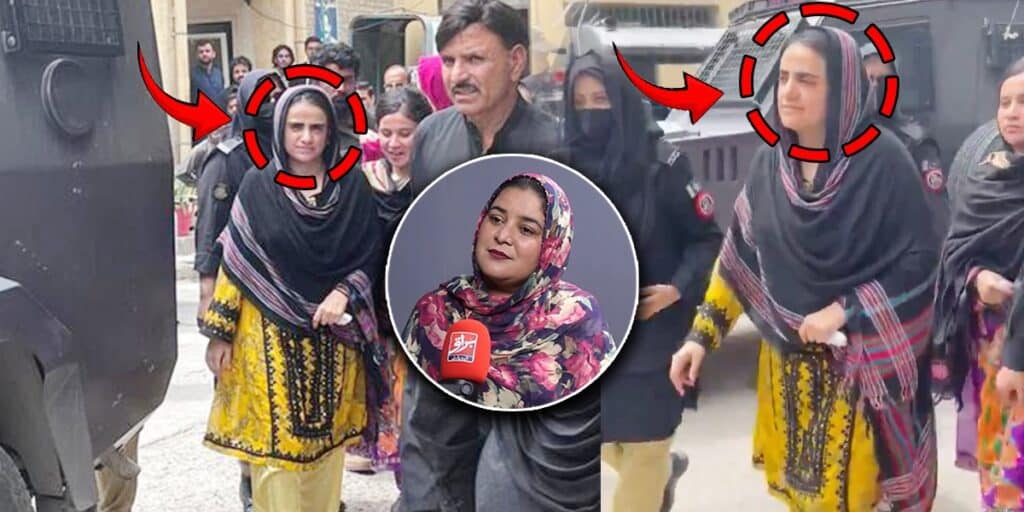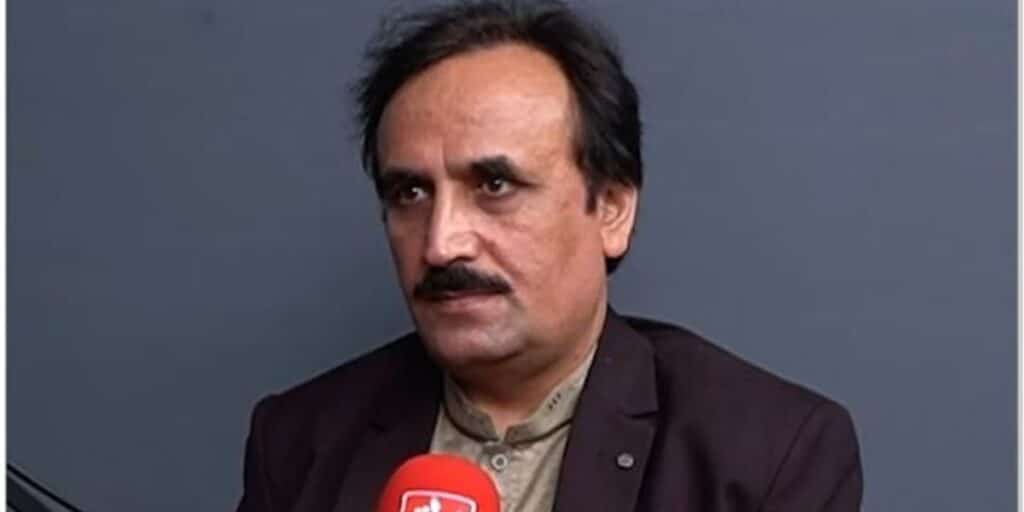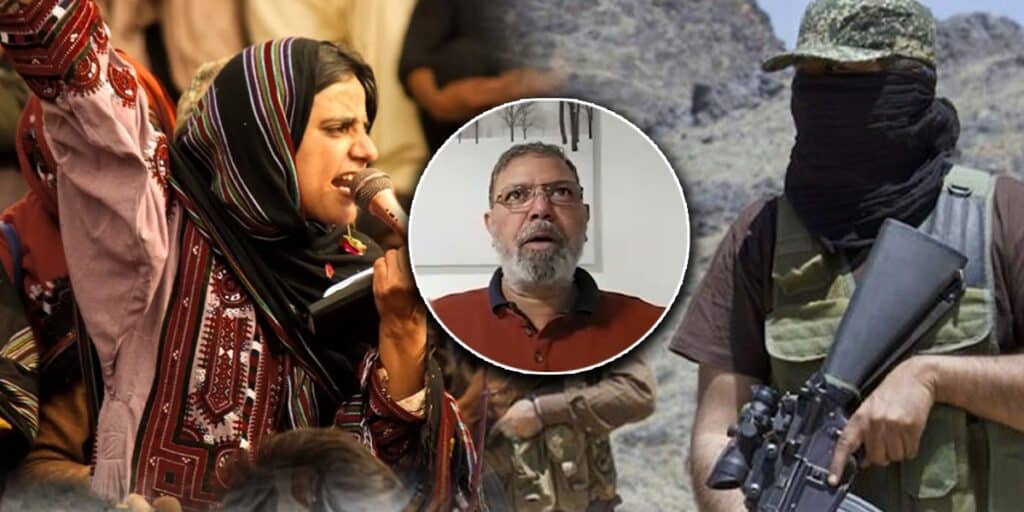By: Salma Khan
When I saw Mahrang Baloch being brought to court recently, the first thought that crossed my mind was clear: all the noise, all the allegations about torture, mistreatment, and denial of rights during her detention were nothing but calculated propaganda.
She walked into court looking perfectly fine—her face calm, her clothes neatly ironed, her demeanor composed. There were no signs of distress, no indications of abuse. In fact, she looked healthier and more composed than many ordinary citizens. The way she appeared, it was evident she was being treated far better than the average inmate.
There was no large crowd rallying behind her this time. Previously, she had throngs of supporters turning her every appearance into a spectacle. But this time, her entry was subdued, her sense of stardom dimmed. Maybe the reality of accountability finally struck her, perhaps standing alone in the dock made her realize that glorifying anti-state actions comes with consequences.
For years, these so-called activists have spun narratives that state institutions mistreat women, that they’re tortured, silenced, and denied basic rights. But Mahrang’s appearance—and that of her fellow detainees—completely dismantled that script. None of them showed any physical or emotional signs of duress. If anything, they looked like guests of honor rather than prisoners.
Let’s be honest: our state has been extremely lenient with individuals who are openly affiliated with extremist separatist groups. The women presented as victims are, in reality, part of organizations that propagate hatred, violence, and division. They have publicly glorified anti-state agendas, and in some cases, supported the killing of innocent laborers and security personnel. These aren’t “freedom fighters”; they are pawns in a foreign-funded proxy war against Pakistan.
I’ve said this before, and I’ll say it again—our institutions have been too soft. And I believe part of that leniency comes from the fact that these women are presented as symbols of victimhood. But I ask: should gender shield someone from justice? Should a woman who is involved in encouraging violence be exempt from accountability?
We saw something similar with Gulzar Dost. For years, his name was thrown around in campaigns about “missing persons.” Posters were printed, protests held, and hashtags trended. But when he was found in police custody—healthy, smoking a cigarette, posing for pictures taken with an iPhone—the truth became undeniable. Not only was he not missing, but he was clearly being supported and glamorized even in detention.
These images are a slap in the face to every Pakistani who has suffered at the hands of terrorism. These criminals don’t show a hint of remorse. Instead, they laugh, pose, and enjoy luxuries even while in custody. And yet, the state continues to treat them with delicacy.
Let me be clear: we are not advocating for inhumane treatment. We are asking for equal treatment under the law. If these individuals are accused of crimes—especially crimes as grave as terrorism and sedition—they must face due process, not special privileges. The idea that Mahrang Langov or anyone like her is some sort of icon is deeply troubling.
Her smile in court wasn’t a sign of resilience—it was arrogance. Her symbolic “victory sign” was not courage—it was mockery. And what does that say to the rest of the world? Is Pakistan too weak to hold criminals accountable?
No. That must change.
We must send a clear message: romanticizing anti-state behavior will not be tolerated. If the evidence supports the allegations, then punishments must follow firmly and fairly. If Mahrang is found guilty, she must serve a sentence that reflects the severity of her actions. Only then will the youth following her learn that rebellion and terrorism don’t lead to fame—they lead to justice.
This is not about silencing dissent. It’s about drawing a line between dissent and treason.
Our patience has been mistaken for weakness long enough. It is time for the state to act—firmly, decisively, and within the rule of law. Because if we don’t set an example now, others will rise emboldened by inaction.
It’s time we stop treating enemies of the state like celebrities. They are not guests. They are criminals and must be treated as such.





